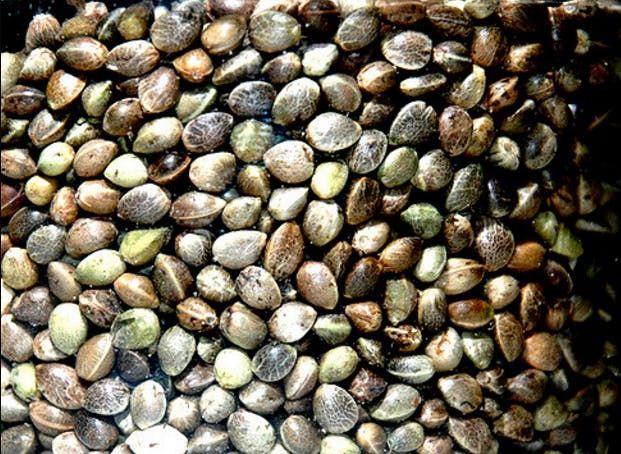Although there’s no official scientific definition of the term, superfood, it’s commonly used as a descriptor for any nutrient-rich whole food that may provide unique health benefits. Superfoods typically have generous amounts of nutrients like fiber, protein, complex carbohydrates and antioxidants, all of which can help the body fight off disease, manage hunger and improve cholesterol levels, blood pressure levels and heart health. Basically, superfoods are really good for you.
According to these criteria, hemp seeds fit the bill as a superfood. A standard serving of 3 tablespoons of hulled hemp seeds has about 165 calories, more than 14 g of healthy fats (most of them unsaturated), and almost 10 g of protein. Hemp seeds are also rich in minerals like magnesium, phosphorus and potassium.
On top of that, hemp seeds are extremely versatile. They can be eaten raw or cooked. And hemp seeds can be made into oil, ground meal or protein powder.
FOLLOW US ON FACEBOOK & INSTAGRAM
Hemp Seeds: Hulled vs. Whole
What’s the difference between hulled and whole hemp seeds? Whole hemp seeds haven’t had their outer hulls removed, so they’re in a less processed state. Because their outer hulls are still intact, whole hemp seeds also have significantly more dietary fiber—in particular, insoluble fiber —than hulled seeds do. Dietary fiber is important for maintaining digestive health, and it also plays a role in lowering your cholesterol and blood sugar levels.
Hulled hemp seeds, also called hemp hearts, are easier to digest and generally more palatable. They also have less total fiber. Because they lack the protection of the outer hull, they also tend to go rancid sooner than whole seeds do. So, storing them in the fridge or freezer over the long term is a good idea. Both varieties have excellent nutritional value.
The Health Effects of Consuming Hemp Seeds
Superfoods can positively impact your health. For hemp seeds, those positive effects start with heart health. Since they’re particularly high in omega-3 and omega-6 fatty acids, hemp seeds have a unique ability to lower the risk of heart disease.
The protein quality of hemp seeds is also notable. A measure called the protein digestibility-corrected amino acid score, or PDCAAS, is traditionally used to judge the quality of protein in foods according to their digestibility and amino acid content. Hulled hemp seeds have a PDCAAS that’s equal to or greater than the measure for many nuts, grains and legumes. Since hemp seeds are entirely plant-based, they’re an especially valuable protein source for vegetarians and vegans.
There’s also evidence that hemp seed protein can:
- boost energy
- reduce fatigue
- prevent or treat high blood pressure (hypertension)
RELATED: WHAT IS HEMP & WHAT IS IT USED FOR?
Hemp in America
Despite the numerous health benefits of hemp seeds, farmers in the United States aren’t allowed to grow hemp commercially. In 1937, a drug law was passed that made hemp cultivation illegal due to hemp’s relationship to marijuana: cannabis and hemp are varieties of the Cannabis sativa plant. This is despite the fact that hemp contains less than 0.3 % of tetrahydrocannabinol (THC), the psychoactive component that makes up 5–20%—and more in some cases—of the marijuana plant.
In 2014, however, a new law was passed that made it legal for farmers in a pilot program to grow hemp for research purposes. It’s still not possible for farmers outside the program to grow hemp, but the new law is a notable step forward toward the possibility of future hemp cultivation in the U.S.
Photo credit: Jason Rogers
If you’re new to cannabis and want to learn more, take a look at our Cannabis 101 post. HelloMD can help you get your medical marijuana recommendation; it’s easy, private and 100% online.



